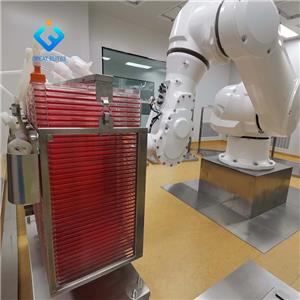DNA repair: new research shows that hydroxychloroquine has potential toxicity to mammalian cells
DNA repair: new research shows that hydroxychloroquine has potential toxicity to mammalian cells
On August 6, 2021, it was reported that in a new study, Dr. Ahmad besaratinia, a research professor of the Department of population and Public Health Sciences, Keck School of medicine, University of Southern California, and his team showed the genotoxicity of hydroxychloroquine in mammalian cells for the first time. The relevant research results will be published in the Journal of DNA repair in October 2021, with the title of "hydrochloroquine induced oxidative DNA damage and mutation in mammalian cells".
Besaratinia said, "the controversy caused by hydroxychloroquine has attracted the attention of our team. We realize that although this drug has been widely used to treat various diseases from malaria to rheumatoid arthritis, its exact mechanism of action is just beginning to be understood. Most importantly, there is no data on whether hydroxychloroquine has adverse effects on the human genome."
Hydroxychloroquine has mutagenic effect at clinically achievable dose
This new study confirms conclusively that hydroxychloroquine exhibits DNA damage and mutagenic effects at clinically achievable doses. Besaratinia noted that these doses were critical to the results of these studies. He said, "we used a cell culture system derived from embryonic mouse cells for this study. Although the drug levels used in many in vitro experiments were unrealistically high, we used the therapeutic dose of hydroxychloroquine that was actually administered to patients."
The use of hydroxychloroquine has long been associated with cardiotoxicity, ophthalmic and gastrointestinal complications. This new study suggests that there may be additional side effects that may affect the patient population. For example, mutations caused by DNA damage are the cause of many chronic diseases, including cancer. Besaratinia said, "this drug can induce gene mutations, which means that we must carefully evaluate the risks and benefits of its use, especially in the context of clinical trials."
Hydroxychloroquine (HCQ) induces DNA damage and mutation in mouse cells in vitro. In big blue treated with increasing HCQ concentration or control (solvent) ® Induced oxidative DNA damage (8-oxodG) and CII mutation frequency in mouse embryonic fibroblasts (MEFs). The picture is from DNA repair, 2021, DOI: 10.1016/j.dnarep.2021.103180.




